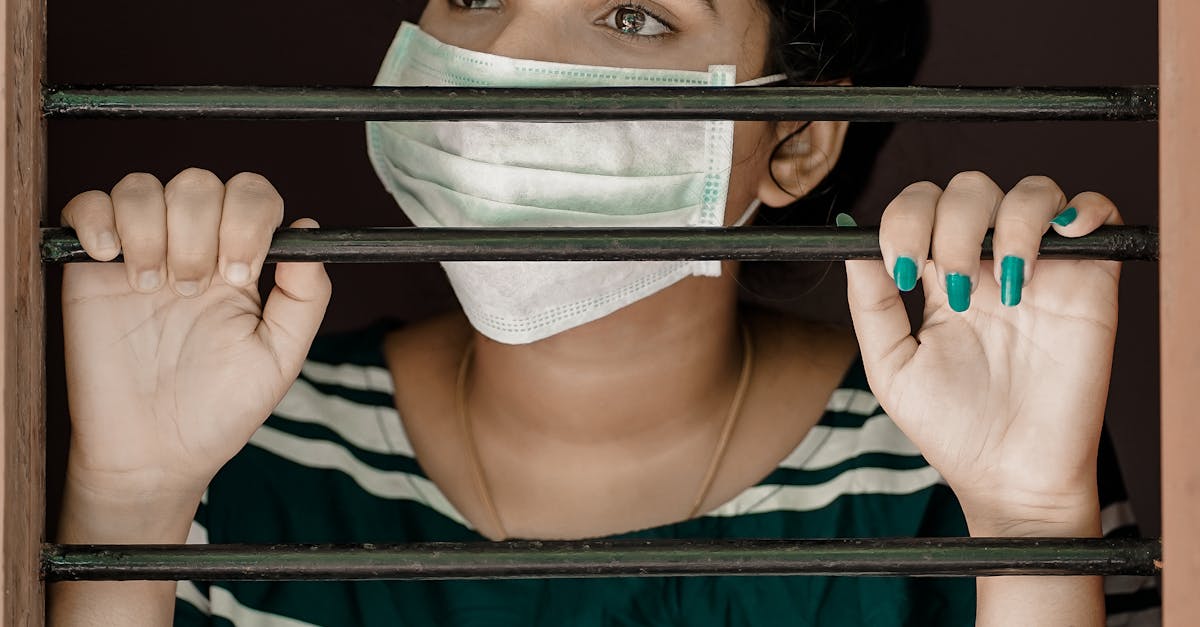Our homes should be our sanctuaries, offering comfort, security, and peace of mind. However, even the most well-maintained house can harbor hidden dangers. That’s why prioritizing home safety is crucial for protecting yourself, your loved ones, and your property. This comprehensive guide will equip you with the knowledge and tools to identify potential hazards, implement preventative measures, and create a safer living environment for everyone.
Statistics on Home Accidents
Before we dive into the importance of home safety, let’s take a look at some alarming statistics on home accidents:
- Every year, an estimated 21 million Americans seek medical attention for accidental injuries in their homes.
- Falls are the leading cause of home injury-related deaths, accounting for one-third of all fatal home accidents.
- In the United States, home fires occur every 24 seconds, resulting in over $7 billion in property damage annually.
- Carbon monoxide poisoning causes an average of 430 deaths each year in the US, with the majority occurring in homes.
- Overloading electrical outlets and using extension cords improperly contribute to approximately 3,300 home fire incidents each year.
These statistics show that home accidents are a real and prevalent danger. By taking proactive steps towards home safety, you can greatly reduce the risk of these incidents happening in your own home.
Importance of Home Safety

The stakes are high when it comes to home safety. Neglecting potential hazards can lead to:
Injuries
Falls, fires, carbon monoxide poisoning, electrical shocks, and other accidents can result in severe injuries, permanent disabilities, and even death. According to the National Safety Council, the cost of unintentional falls in the US exceeds $10 billion annually, with an average cost of $30,000 per fall. These costs include medical expenses, lost wages, and decreased productivity. Additionally, accidents can have long-lasting physical and emotional effects on individuals and their families.
Financial Loss
Home accidents can cause damage to property, leading to costly repairs and insurance claims. According to the Insurance Information Institute, in 2019, homeowners’ insurance losses totaled over $1 billion due to electrical fires alone. In addition to property damage, home accidents can also result in medical expenses and lost income if an individual is unable to work due to injury.
Emotional Distress
Witnessing a serious incident or experiencing a loss can inflict significant emotional trauma on individuals and families. The aftermath of a home accident can lead to feelings of fear, anxiety, and depression, especially if there are injuries involved. It can also cause stress and strain in relationships, particularly if the accident could have been prevented by taking proper safety measures.
By prioritizing home safety, you not only protect yourself and your loved ones from physical harm but also prevent financial and emotional distress.
Tips for Preventing Accidents at Home

Now that we understand the importance of home safety let’s explore some practical tips for preventing accidents in different areas of the house.
Kitchen
The kitchen is often considered the heart of the home, but it can also be a hazardous area if proper precautions are not taken. Some essential tips for keeping your kitchen safe include:
Fire Safety
Install smoke detectors on every level of your home and test them monthly. Make sure to replace batteries regularly and replace the entire unit every ten years. Keep a fire extinguisher readily accessible in the kitchen, and make sure everyone in the household knows how to use it. Never leave cooking unattended, and keep flammable materials away from the stovetop or oven. Use pot holders and oven mitts when handling hot items, and always turn off appliances when not in use.
Food Safety
Practicing proper food safety habits can also prevent accidents in the kitchen. This includes washing your hands before handling food, keeping raw meats separate from other foods, and properly storing and cooking food to avoid foodborne illnesses. Make sure to clean your countertops, cutting boards, and utensils regularly to prevent cross-contamination.
Electrical Safety
The kitchen is a hot spot for electrical appliances, making it crucial to use them safely. Avoid using extension cords in the kitchen, as they can easily overload and cause fires. Never use wet hands or stand on a wet surface when operating electrical appliances, and never stick anything into a toaster or microwave while they are turned on.
Bathroom
Bathrooms are another area of the house where accidents are prevalent, especially for young children and seniors. Here are some tips for preventing bathroom-related injuries:
Slip and Fall Prevention
Install grab bars in the shower and near the toilet to help with balance and stability. Place non-slip mats in the bathtub and shower to reduce the risk of slips and falls. Keep the bathroom floor dry and clear of clutter, and make sure there is adequate lighting so that all hazards are visible.
Medication Safety
Many households store medications in the bathroom, but it’s essential to keep them out of reach of children. Make sure to lock up any prescription medication and keep over-the-counter medicines in childproof containers. Dispose of expired or unused medication properly to prevent any accidental ingestion.
Electrical Safety
Avoid using electrical devices near water, and always unplug appliances after use. If you have small children in the house, consider installing outlet covers to prevent them from sticking fingers or objects into sockets.
Living Room
The living room is where we spend most of our leisure time, making it important to prioritize safety in this space as well.
Furniture Safety
Secure furniture such as bookshelves, televisions, and dressers to the wall to prevent tipping. Keep cords for electronic devices neatly organized and out of walkways to avoid tripping hazards. If you have small children, consider investing in furniture with rounded edges to prevent injuries.
Fire Safety
Make sure you have functioning smoke detectors in the living room and other common areas of the house. Avoid overloading electrical outlets and regularly check for frayed cords or malfunctioning appliances that could pose a fire hazard.
Chemical Safety
If you have a fireplace, make sure to have it inspected and cleaned regularly to prevent chimney fires. Keep all flammable materials at least three feet away from any heat source. If you use cleaning supplies, store them in a locked cabinet to prevent children or pets from accessing them.
Bedroom
The bedroom is where we spend a significant portion of our time sleeping and resting, making it essential to prioritize safety in this space.
Bed Safety
Make sure your bed frame and headboard are sturdy and secure, and avoid placing beds near windows in case of earthquakes or strong winds. Use guardrails on bunk beds to prevent falls, and keep cribs clear of blankets, pillows, or toys to reduce the risk of suffocation.
Electrical Safety
Check your electric blanket for any frayed cords or signs of damage before using. Avoid using extension cords in the bedroom, and unplug any devices when not in use.
Emergency Preparedness
Make sure everyone in the household knows how to safely exit the bedroom in case of an emergency, and keep a flashlight nearby in case of a power outage. If anyone in the household has mobility issues, consider installing a medical alert system that can notify emergency services in the event of a fall or other emergency.
Importance of Emergency Preparedness
No matter how many preventative measures are taken, accidents and emergencies can still happen. That’s why being prepared for these situations is just as crucial as preventing them. Here are some tips for emergency preparedness:
- Put together an emergency kit that includes first aid supplies, flashlights, non-perishable food, and water.
- Create an emergency plan with your family, including escape routes, designated meeting places, and important contact information.
- Practice fire drills and other emergency scenarios regularly to ensure that everyone knows what to do in a crisis.
- Consider installing a home security system that includes smoke and carbon monoxide detectors, as well as a panic button for medical emergencies.
By being prepared for emergencies, you can minimize the impact of potential accidents and keep your loved ones safe.
Conclusion
Our homes should be a place of comfort and safety, but without taking proper precautions, they can quickly become a danger zone. By understanding the importance of home safety and implementing preventative measures, we can reduce the risk of accidents and injuries. This comprehensive guide has provided tips and insights for creating a safer living environment in every area of the house. Remember to regularly check for hazards and practice emergency preparedness to ensure the safety and well-being of everyone in your household.
